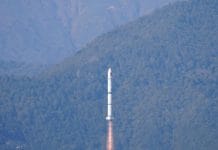The Malaysia-Japan Economic Dialogue 2023 opened today with a keynote address by YB Senator Tengku Datuk Seri Utama Zafrul Tengku Abdul Aziz, Minister of Investment, Trade, and Industry for Malaysia. The dialogue, held at the Grand Ballroom of the Intercontinental Hotel Kuala Lumpur, brought together distinguished guests and leaders from both nations to discuss and strengthen economic cooperation.
Addressing the attendees, Zafrul emphasised the importance of this event, organised by the Federation of Malaysian Manufacturers (FMM), Japan Chamber of Commerce and Industry (JCCI), and Nikkei Inc., in facilitating the exchange of ideas and furthering the joint aspirations of both countries.
Zafrul spoke of Malaysia’s transformation from an agriculture and commodity-based economy to an industrialised, export-oriented one, citing the Look East Policy (LEP) initiated in 1982 as a catalyst for emulating Japanese work ethics, technology transfer, and organizational management systems. Over time, the LEP successfully solidified cooperation in various sectors, including economics, education, culture, and tourism, leading to the shift of focus towards trade and investment under the Second Wave of the LEP in 2013.
Zafrul highlighted the strong economic linkages between Malaysia and Japan, noting that Japan has been Malaysia’s fourth-largest trading partner for eight consecutive years since 2015. In 2022, trade with Japan accounted for 6.4% of Malaysia’s total trade at USD41.26 billion (RM181.73 billion), despite a challenging global environment.
The Minister emphasised Japan’s role as one of Malaysia’s main sources of foreign direct investment (FDI), with 2,778 projects implemented as of June 2023, amounting to USD27.25 billion (RM91.89 billion) and creating 337,758 job opportunities. He also shared that Malaysia secured investment commitments of RM23.07 billion from Japanese companies during his Trade and Investment Mission to Japan in May.
Zafrul emphasised the importance of maintaining a conducive investment environment to attract more FDI into Malaysia, highlighting the New Industrial Master Plan (NIMP) 2030 as a key component of the MADANI Economy framework. The NIMP 2030 aims to transform 3,000 factories into smart factories, promoting technology adoption, creating high-skilled jobs, and building supply chain resilience.
In alignment with Malaysia’s commitment to sustainability, Zafrul noted the adoption of the 2030 Agenda for Sustainable Development Goals (SDGs) in 2015 and the country’s commitment to reduce greenhouse gases by 45% in 2030 and achieve carbon neutrality by 2050. He underlined the role of Malaysia’s National Environmental, Social, and Governance Industry (i-ESG) Framework in helping industries and MSMEs adopt ESG principles to meet these SDG targets.
Zafrul welcomed collaboration with Japan in the area of sustainability, including a potential bilateral partnership agreement with Japan for the Joint Crediting Mechanism (JCM) initiative, demonstrating Malaysia’s commitment to responsible industry practices.
Zafrul expressed his belief that collaboration with Japanese private sector partners would lead to a stronger trade and investment relationship, driving economic growth and technology transfer. He emphasised that the Malaysia-Japan Economic Dialogue serves as a pivotal platform for nurturing this collaboration, addressing challenges, identifying shared interests, and formulating strategies to propel bilateral trade and investment.









